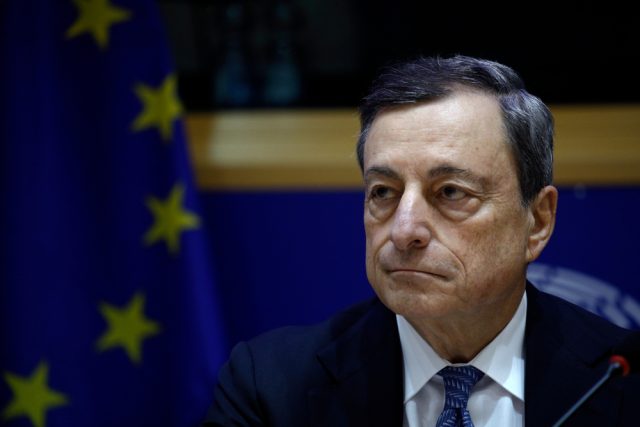
A four-hundred-page dossier to increase defence investment, promote industrial capabilities and improve strategic dialogue between the twenty-seven member states. This is the content of the report on European competitiveness drafted by former Council President Mario Draghi, at a historical moment marked by insecurity and global threats, first and foremost the large-scale invasion of Ukraine by Putin’s Russia.
Draghi calls for xtreamlined EU Defence Industry: Urges full access to funding and strategic overhaul amid Ukraine conflict
European defence firms should not be hampered by bureaucracy as they boost arms production, according to a recent confidential report obtained exclusively by POLITICO.
With the large-scale war in Ukraine, triggered by the Russian invasion, continuing to affect European security, defence companies on the continent should have full access to EU funding. Furthermore, mergers in the sector should not be automatically blocked due to competition concerns, a preliminary chapter of a report on competitiveness by former Italian Prime Minister Mario Draghi suggests.
‘The defence industrial base in the EU is facing structural difficulties regarding production capacities, skills and technological advantage. This prevents the Union from competing effectively at the global level,’ Draghi says in the draft document.
The former President of the European Central Bank is finalising his long-awaited report for Ursula von der Leyen, President of the European Commission, examining how European industry can regain lost ground on the international stage.
‘With the return of conflict on the EU’s doorstep, the growth of new hybrid threats and a possible shift in geopolitical priorities and US defence needs, the EU will have to assume increasing responsibility for its own security and defence,’ the document reads.
The draft highlights several challenges facing the European defence industry, including insufficient public spending: the EU spends about a third of what the US spends on defence.
Moreover, European arms companies operate in limited national markets, with a lack of coordination in procurement by member states and an 80 per cent dependence on international, predominantly US, suppliers, Draghi notes.
Among the report’s recommendations are the introduction of a ‘European preference principle’ to promote European defence solutions over those of competitors, the definition of a governance model involving the Commission, the European External Action Service and the European Defence Agency, and the creation of a centralised ‘Defence Industry Authority’ to deal with procurement on behalf of member states.
‘The authority would be managed by the European Commission and co-chaired by the High Representative/Vice-President of the Commission and the Head of the European Defence Agency,’ the document reads. ‘It would be supported by sector-specific groups composed of industry and EU Member State representatives.’
A draft of the defence industry chapter, dated 20 June, urges Brussels to remove the obstacles that prevent defence companies from accessing European funds. The document proposes revising the European Investment Bank’s lending policies, which are currently restrictive towards the defence sector, and adapting EU regulatory frameworks on sustainable finance and environmental, social and corporate governance (ESG) to benefit the industry.
Last year, he was tasked with preparing a comprehensive dossier to revitalise the industry on the old continent. Now Mario Draghi has completed his work. On 4 September, he will present his study to the European Union Parliament in order to extract the reasons that have held back Europe’s industrial growth globally.
Mario Draghi calls for ‘radical change’ for Europe
Mario Draghi proposes a significant transformation to stimulate growth in Europe, as he stated on 16 April during the High Level Conference on the European Pillar of Social Rights. In his 400-page plan, around 300 pages are dedicated to the analysis of key sectors such as energy, defence and trade. The document also includes proposals to strengthen European infrastructure, industry, governance and the EU’s economic and fiscal orientation.
Four months ago, the former Council president had pointed out that the strategy adopted to regain competitiveness after the sovereign debt crisis had focused on reducing labour costs and a pro-cyclical fiscal policy. This approach, according to Draghi, only had the effect of weakening domestic demand and undermining the European social model. ‘Europe has focused on the wrong things,’ he said.
The European Union’s economic mistakes
A fundamental mistake, according to Draghi, was to focus on domestic competition in areas such as defence and energy, based on a level playing field with other powers and an international order governed by rules that not all respected, with some countries exploiting policies to improve their competitive position.
Draghi argues that China has aimed to internalise technology and green supply chains, securing access to the necessary resources. The US, on the other hand, has adopted a large-scale industrial policy, attracting global companies, including European ones, through protectionism and excluding competition.
Draghi’s proposal: the Industrial Deal
Draghi’s vision for the European Industrial Deal involves overcoming national fragmentations, exploiting economies of scale through joint purchases in the defence and security sectors, and joint investments in new technologies and telecommunications, such as 5G, by coordinating the efforts of operators. Furthermore, it is necessary to direct research and start-ups towards the internal market, to create a new regulatory framework for emerging technology companies, and to review prudential regulation of bank lending.
Finally, Draghi suggests the development of a unified strategy to ensure access to critical resources, such as energy and raw materials, and a skilled workforce, while reducing dependence on external countries, which, as demonstrated by the war in Ukraine and dependence on Russian gas, can put the European economy at risk.
Draghi will present the report in a confidential, high-level meeting at the European Parliament on Wednesday, with publication scheduled for the second week of September.



 Subscribe
Subscribe